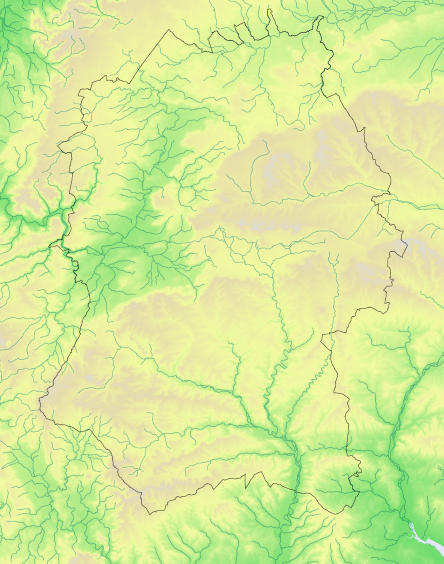Atlas species lists
- Breeding distribution 1995–2000
- Summer abundance 1995–2000
- Winter distribution 1995–2000
- Winter abundance 1995–2000
- Breeding distribution 2007–2012
- Summer abundance 2007–2012
- Winter distribution 2007–2012
- Winter abundance 2007–2012
- Breeding distribution change
- Summer abundance change
- Winter distribution change
- Winter abundance change
More Short-eared Owl maps
- Breeding distribution 1995–2000
- Summer abundance 1995–2000
- Winter distribution 1995–2000
- Winter abundance 1995–2000
- Breeding distribution 2007–2012
- Summer abundance 2007–2012
- Winter distribution 2007–2012
- Winter abundance 2007–2012
- Breeding distribution change
- Summer abundance change
- Winter distribution change
- Winter abundance change
Map explanation
This map shows the winter relative abundance of the species in Wiltshire, based on variation from the average, as revealed by the fieldwork for Birds of Wiltshire (Wiltshire Ornithological Society 2007).
Key
Relative to average
Nos tetrads

>50% fewer
0
0%

25-50% fewer
0
0%

Average +/- 25%
0
0%

25-100% more
0
0%

>100% more
0
0%
Total
0
0%

Not surveyed
Short-eared Owls breed across northern Eurasia and North America, southern South America and on some Pacific, Caribbean and Atlantic islands. Northern populations are largely migratory, wintering south to Africa north of the equator, southern India, south China and Mexico. Birds in the northern European population lay larger clutches in years when lemming populations are high.
The European population has been in decline since the mid 20th century including in Britain where the breeding range contracted by almost 50% between the 1968-72 Breeding Atlas and Bird Atlas 2007-2011. A ground nesting species, in Britain it breeds mostly in Scotland and northern England where extensive undisturbed open areas, rich in small mammals, provide suitable habitat. The range contractions have affected in particular central Wales, eastern England and southern and eastern Scotland. Outside the breeding season the British population disperses widely, to southern Britain and to northern Spain and the central Mediterranean.
In Wiltshire they visit regularly in winter, being found mainly on Salisbury Plain in numbers fluctuating according to the availability of voles. A few have been known to remain throughout the summer though it was not until 1964 that breeding was first confirmed when adults with four young were observed near Tidworth on 26 June. Since then confirmed or proable breeding has been recorded in eight years.
References
The following references are used throughout these species accounts, in the abbreviated form given in quotation marks:
“1968-72 Breeding Atlas” – Sharrack, J.T.R. 1976: The Atlas of Breeding Birds in Britain and Ireland. T. & A. Poyser
“1981-84 Winter Atlas” – Lack, P.C. 1986: The Atlas of Wintering Birds in Britain and Ireland. T. & A. Poyser
“1988-91 Breeding Atlas” – Gibbons, D.W., Reid, J.B. & Chapman, R.A. 1993: The New Atlas of Breeding Birds in Britain and Ireland 1988-91. T. & A. Poyser
“Birds of Wiltshire” – Ferguson-Lees, I.J. et al. 2007 : Birds of Wiltshire, published by the tetrad atlas group of the Wiltshire Ornithological Society after mapping fieldwork 1995-2000. Wiltshire Ornithological Society.
“Bird Atlas 2007-2011” – Balmer, D.E., Gillings, S., Caffrey, B.J., Swann, R.L., Downie, I.S. and Fuller, R.J. 2013: Bird Atlas 2007-2011: the Breeding and Wintering Birds of Britain and Ireland
“WTA2” – ("Wiltshire Tetrad Atlas 2 ") the present electronic publication, bringing together the Wiltshire data from “Birds of Wiltshire” and “Bird Atlas 2007-11”, together with data from further fieldwork carried out in 2011 and 2012.
"Hobby" - the annual bird report of the Wiltshire Ornithological Society.

